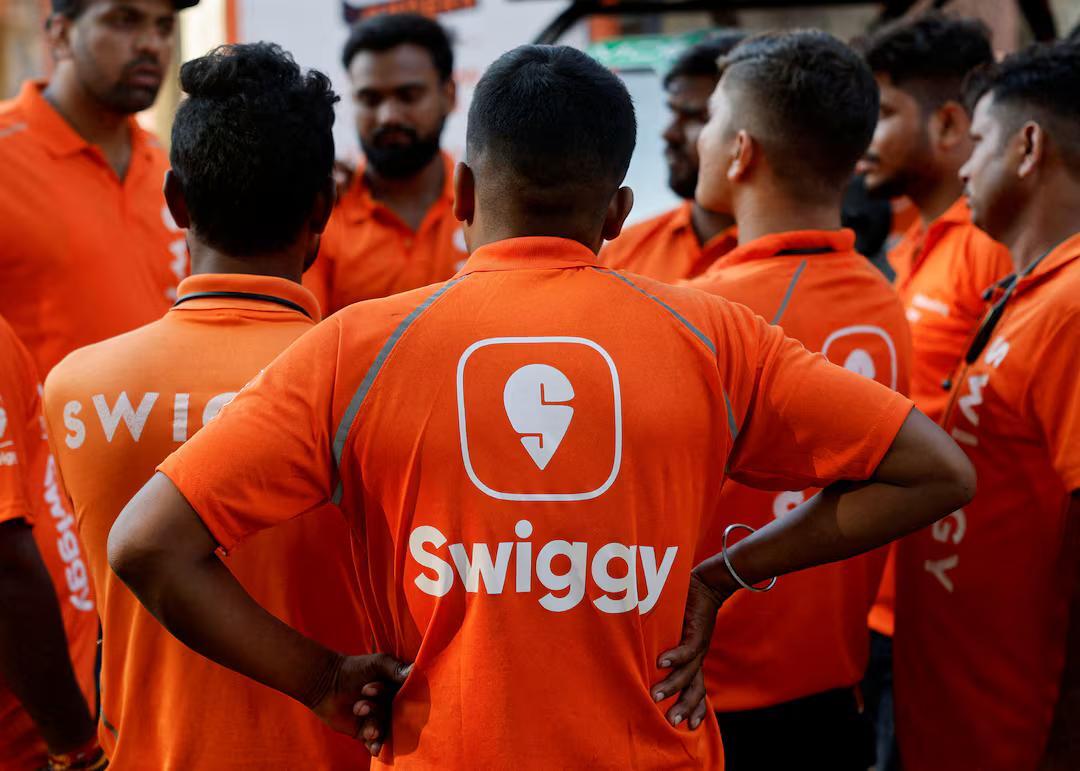In a significant ruling that highlights the importance of consumer rights, the District Consumer Disputes Redressal Commission in Telangana’s Ranga Reddy district recently fined Swiggy, one of India’s largest food delivery platforms, nearly ₹35,000. This penalty was imposed for overcharging a Hyderabad resident by inflating the delivery distance and applying an unjust delivery fee.
The incident sheds light on the ongoing issues with online service charges and how consumers are standing up to protect their rights. Here’s a closer look at the case and its implications for both consumers and service providers.

The Complaint: Inflated Delivery Distance and Unjust Fee
The case arose when a Hyderabad resident with a Swiggy One membership, which offers free delivery within a specified distance, was charged ₹103 as a delivery fee. According to reports, Swiggy allegedly increased the delivery distance from 9.7 kilometers to 14 kilometers, thus exceeding the membership’s free delivery radius and justifying the extra fee.
Feeling overcharged, the customer took the issue to the District Consumer Disputes Redressal Commission, arguing that Swiggy’s manipulation of the distance was an unfair practice, especially for a paying Swiggy One member who was entitled to free delivery within the specified range.
The Ruling: Fine Imposed for Unfair Trade Practice
After reviewing the complaint, the District Consumer Disputes Redressal Commission ruled in favor of the customer. The commission fined Swiggy ₹35,000 for unfair trade practices, emphasizing that the inflated delivery distance and resulting extra charge were unjustified. The fine includes compensation for the inconvenience caused to the customer, highlighting the accountability that large service providers have towards their customers.
This ruling serves as a reminder that companies cannot exploit their customers, especially when they subscribe to premium services with specific promised benefits. Swiggy’s attempt to increase the delivery charge by manipulating the distance metric was deemed unacceptable and a breach of consumer trust.’
The Swiggy One Membership: Benefits And Limitations
Swiggy One is a premium membership program launched by Swiggy, promising free deliveries within a certain distance, reduced fees on longer distances, and discounts on various partner services. For consumers who frequently use Swiggy, the membership provides a convenient way to save on delivery fees and access additional benefits.
However, as this case shows, such memberships also come with limitations and conditions that can be manipulated if not monitored carefully. The commission’s ruling reinforces that subscribers to services like Swiggy One must receive the promised benefits without unjust charges, otherwise the service provider could be held legally accountable.
Consumer Rights In The Digital Age: Standing Up Against Unfair Charges
The ruling against Swiggy emphasizes the growing awareness among consumers of their rights in the digital economy. With the rapid expansion of online services, customers are often at the mercy of service providers for additional charges, delivery issues, and membership promises.
This case reflects the importance of consumer vigilance and the willingness to seek justice in cases of perceived unfairness. The District Consumer Disputes Redressal Commission’s decision encourages customers to stand up against unfair charges, reinforcing that consumers have the power to question and, if needed, legally challenge service providers who violate the agreed terms.
)
Impact On Service Providers And The Need For Transparency
For companies like Swiggy, this ruling serves as a warning to maintain transparency and uphold the commitments made to their users. In the digital marketplace, where customer trust is paramount, it is essential for service providers to ensure that policies are implemented fairly and consistently.
Manipulating delivery distances, inflating charges, or other practices that appear to breach consumer trust can lead to significant financial penalties and damage the brand’s reputation. Companies need to have clear and transparent policies, especially when handling premium memberships like Swiggy One, to avoid similar disputes in the future.
How This Case Reflects Broader Issues in the Food Delivery Industry
The incident with Swiggy highlights broader issues within the food delivery industry that affect both customers and service providers. The rapid growth of platforms like Swiggy, Zomato, and others has introduced new dynamics in the food and delivery sector, but it has also led to an increase in consumer complaints related to service quality, hidden charges, and transparency. Consumers are increasingly vigilant about where their money goes and are quick to point out perceived discrepancies. This case with Swiggy serves as a reminder for all players in the industry to adopt fair practices and maintain trust with their user base.
Swiggy’s alleged inflation of delivery distance, in this case, reflects a practice that some consumers believe is becoming common in the industry—adding extra charges under various justifications. The company’s decision to charge an additional delivery fee, despite the customer having a membership that offers free delivery, raises questions about how such fees are calculated. Swiggy and other companies might argue that delivery costs are subject to various operational factors, but transparency is key. Without clear communication, consumers are likely to perceive additional charges as deceptive.
The Role of Consumer Protection Laws in Digital Transactions
In India, the Consumer Protection Act of 2019 was introduced to address many of the issues consumers face with digital transactions, including transparency in service delivery. Under the Act, unfair trade practices like inflating costs or providing misleading information are strictly prohibited. The District Consumer Disputes Redressal Commission’s ruling against Swiggy underlines the effectiveness of this legislation in protecting consumer rights, especially in the growing digital marketplace.
Consumers today are becoming more empowered and aware of their rights, thanks to such legal frameworks. This awareness is pushing companies to uphold ethical practices and avoid anything that could be perceived as an unfair trade practice. In Swiggy’s case, the fact that the customer sought legal recourse demonstrates how people are now willing to stand up against practices they find misleading or exploitative. The Consumer Protection Act not only empowers individuals but also promotes accountability within companies that operate in the online and digital realms.
The Importance of Transparent Pricing in Building Customer Loyalty
One of the most critical aspects for companies like Swiggy, which rely heavily on customer trust, is transparent pricing. Customers expect the fees they pay to be straightforward and reflective of the actual costs involved. When discrepancies arise, particularly in cases involving premium memberships like Swiggy One, customers feel deceived, which can erode brand loyalty.
Transparency is especially crucial for subscription services, where customers pay upfront with the expectation of specific benefits. Swiggy One’s promise of free delivery within a certain radius was a significant factor for the customer in this case, and the extra charge contradicted this promise. Companies must ensure that customers receive the benefits they were promised and that any additional charges are fully justified and clearly explained. By doing so, companies not only avoid legal issues but also foster trust and encourage long-term loyalty.
Conclusion: A Victory For Consumer Rights
This case marks an important victory for consumer rights, sending a strong message to digital service providers about the importance of transparency and fairness. By fining Swiggy for inflating the delivery distance and overcharging a customer, the District Consumer Disputes Redressal Commission has reinforced that consumers are protected against unfair trade practices.
The decision also serves as a reminder for consumers to be vigilant and assertive in challenging unjust charges. As the digital economy grows, accountability will remain crucial in maintaining a fair and trustworthy marketplace. Swiggy and other companies in the digital space must prioritize customer trust and deliver on their promises, or they may face similar consequences.

